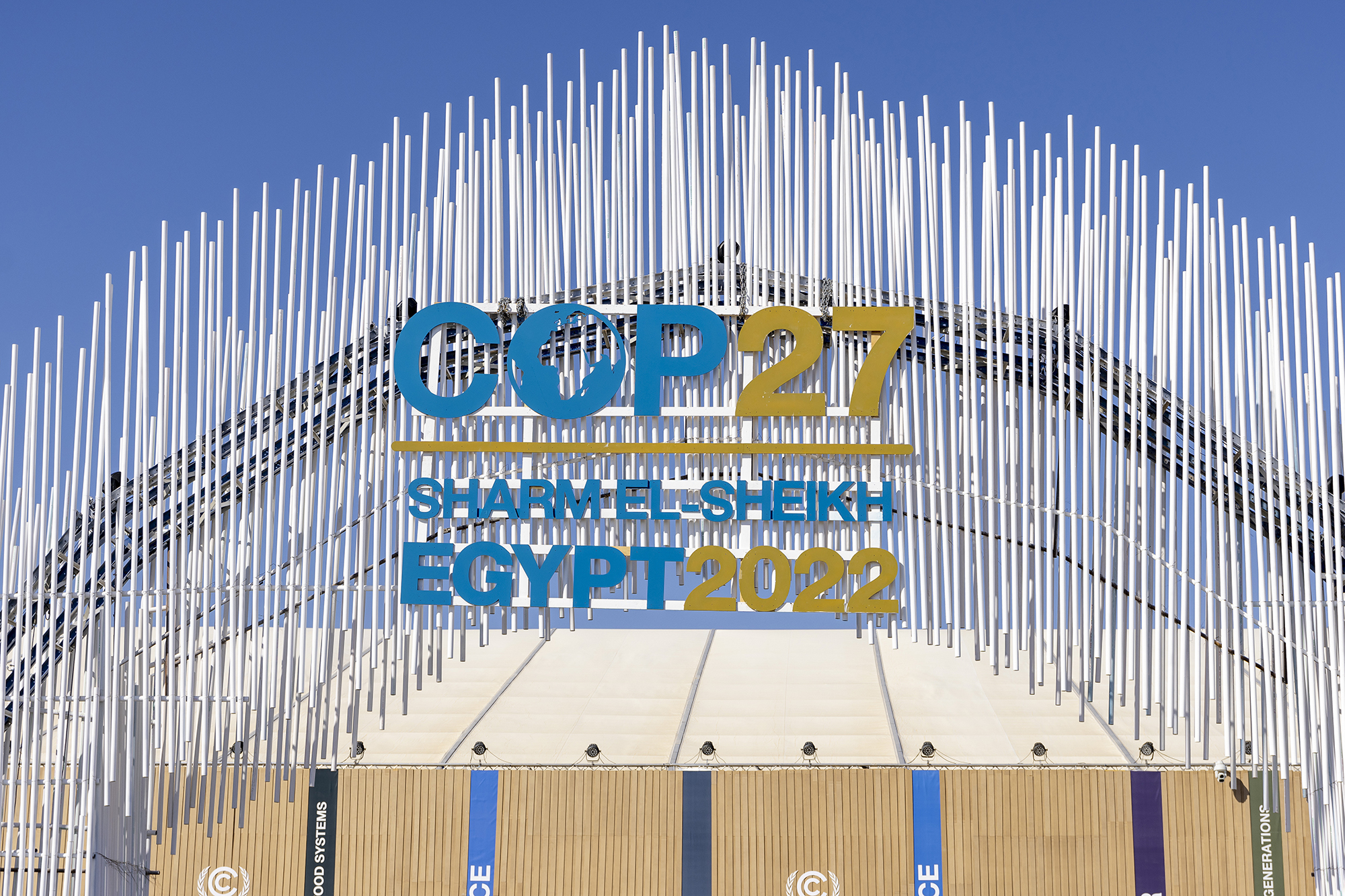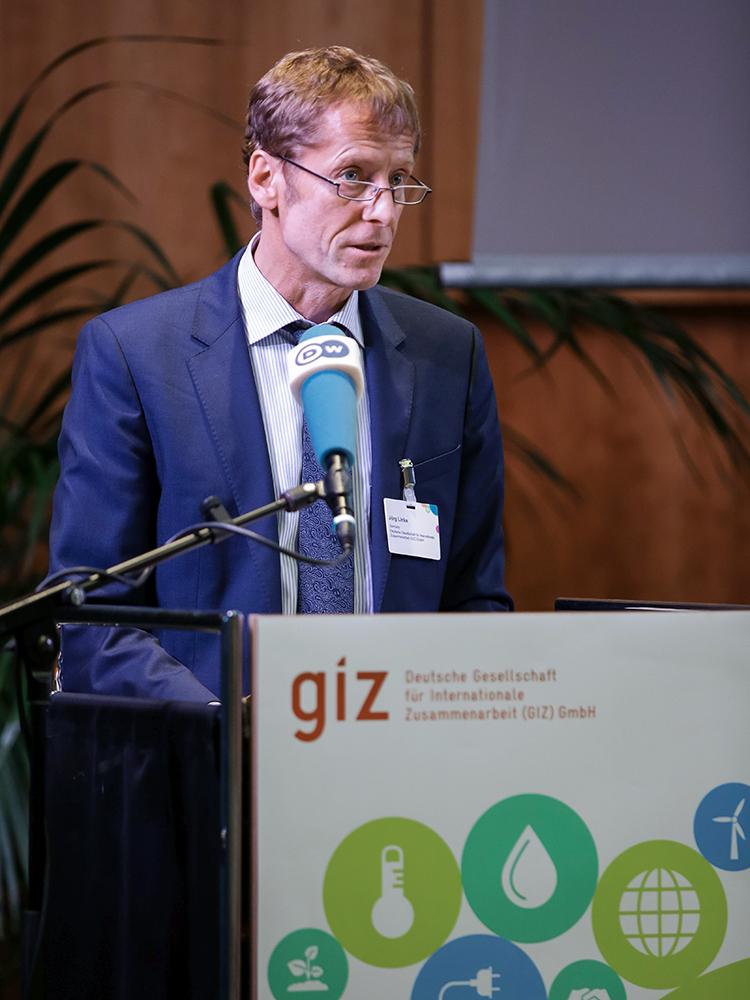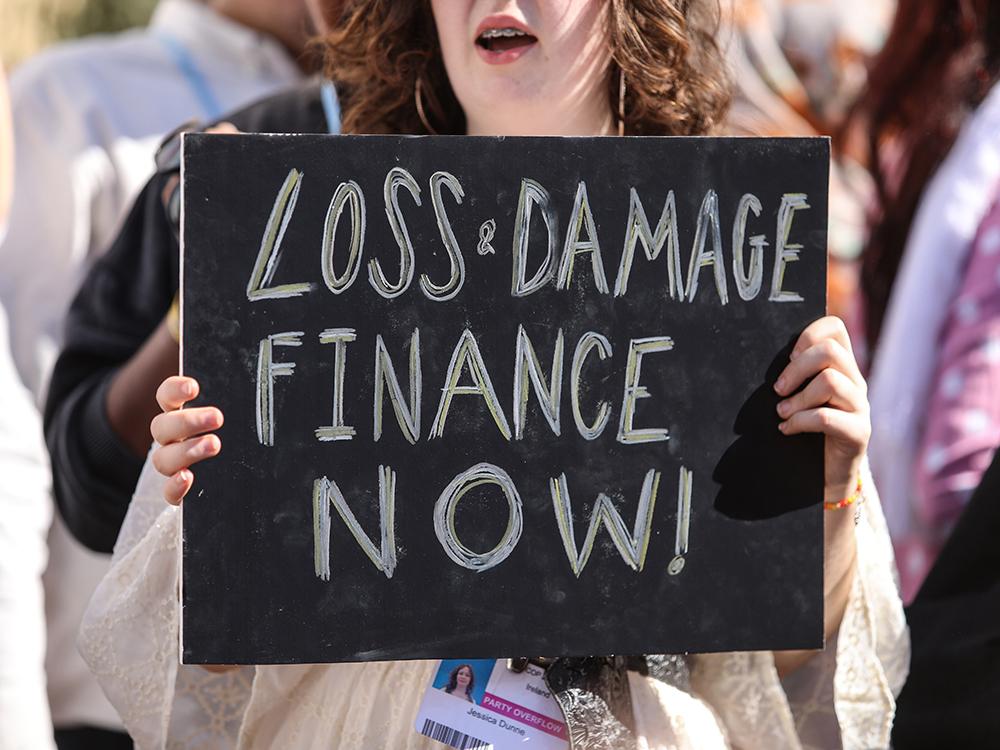
‘The results are mixed’
Jörg Linke, Head of GIZ’s Competence Centre for Climate Change, reports on the results of COP27 in Egypt.
How do you view the climate change conference in Sharm El-Sheikh – a success, or a failure?
I’d say the results are mixed. On the positive side, I’d emphasise that they succeeded for the first time in embedding the issue of loss and damage in the closing document. The international community has decided to establish an international fund to support poorer nations in coping with loss and damage due to climate change. The fund will be financed by the countries who historically bear the responsibility for most of the harmful emissions. There is also a hope that other countries will participate, for example China.
How will the fund work?
Many details are still unclear. The plan is to formulate concrete proposals before the next climate change conference, which is due to take place in Dubai from next November. One clear aim is to strengthen countries at risk in the future and improve their adaptability. It differs in this respect from existing funds, such as the Green Climate Fund and the Adaptation Fund, and probably also from the Global Shield against Climate Risks, which Germany launched during the COP in Egypt. The loss and damage fund is intended to provide countries with direct financial support in an emergency.
You spoke initially of mixed results. What was disappointing?
I felt that the controversial debate over loss and damage overshadowed all other items on the agenda. This was one reason why there was no progress on reducing greenhouse gas emissions, despite recent and urgent recommendations from scientists. On the contrary – it looked at times as if the member countries would fall short of the resolutions of COP26 in Glasgow, and omit the 1.5 degree target from the closing statement. Fortunately, this didn’t happen, partly because the EU threatened to break off negotiations. However, given the dramatic nature of the situation, further agreements on quitting all fossil fuels – not only coal but also gas and oil – were urgently needed. Unfortunately, this didn’t happen. The debate on loss and damage distracted from the interrelationships.
There was a lot of speculation in advance about Egypt as a host country. How did you feel about the atmosphere at the conference?
The mood was very muted. Civil society, and particularly the Non-Governmental Organisations (NGO) scene, was only given limited scope to present its positions, for example at demonstrations. Freedom of expression was restricted. This meant that an important element in the international climate debate was lacking. The restrictions made themselves felt daily. Sharm El-Sheikh also fell well short on sustainability, behind what you ought to expect of a climate change conference.

How will the conference be remembered generally?
This certainly wasn’t an outstanding COP. But for all the shortcomings on the part of the host nation, the blame doesn’t lie with Egypt alone. The war in Ukraine and the resulting energy and food crises made many nations give greater weight to their own needs and interests, and progress on climate change mitigation took a back seat. One insight we gained is that achieving ambitious results always depends on how skilfully a host nation acts and advances the negotiations.
What happens now? How do we get momentum back into the international climate debate?
If the impetus to drive climate action forward doesn’t come through the COPs, it’s all the more important for tangible climate change mitigation – and adaptation – to be advanced through individual countries’ Nationally Determined Contributions (NDCs). But initiatives, alliances and partnerships between developing and industrialised nations can also provide momentum and promote concrete measures that will lead to a climate-friendly transformation of society and the economy. I’m thinking here of climate and energy partnerships such as those Germany is supporting in South Africa, Indonesia and Kenya, or initiatives focusing on forest conservation, methane or green hydrogen.
What does the climate change conference mean for GIZ?
The COP made it clear that it’s increasingly important to consider issues together, rather than separately. With this in mind, we intend to support the German Government in implementing a coherent climate policy across the ministries. We’re looking above all at the new initiatives announced by Germany, and are actively offering our support. This applies for example to the Global Shield against Climate Risks I mentioned earlier. Climate change mitigation and adaptation will continue to have very high priority for GIZ in international cooperation.
